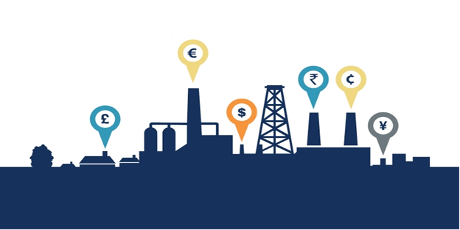Covid-19 pandemic recovery is ideal time to introduce carbon pricing, research finds 17 Nov 2020

UCC-Princeton research paper supports pandemic-recovery carbon pricing
The Covid-19 pandemic has created the ideal conditions to introduce a carbon price, according to new policy research from University College Cork (UCC) and Princeton University.
While endorsed by many economists, carbon pricing has been slower to gain traction because of its potential to shock economies and the difficulty of securing political support for increasing taxes. However this research by Dr Kian Mintz-Woo of the UCC Environmental Research Institute (ERI) finds that a subsequent Covid-19 economic recovery may be an opportune time to introduce carbon pricing to tackle climate change.
The study found at the consumer, producer and government level that the “coronavirus crisis provides a unique opportunity for mutually reinforcing forward-thinking solutions to improve sustainability and wellbeing as countries recover”.
The paper identifies that increased costs from carbon pricing is better placed to be introduced now when energy prices are a historic lows, also energy producers are now more able to absorb changes now as energy production is currently destabilised globally, while governments have an opportune time to introduce carbon pricing by illustrating that the increased additional revenue can be used to meet the needs of its electorate recovering from the Covid-19 pandemic.
In June, the United States (US) House Select Committee on the Climate Crisis (2020) issued a report which calls for a price on carbon. While in Ireland the recent increase in the Irish carbon tax from €26 per tonne to €33.50 per tonne currently applies to just automobile fuel but will be phased in for solid fuel next year. Lead author on the study Dr Kian Mintz-Woo says there are good reasons to introduce it now, even during the COVID-19 crisis.
“When we think about long-term problems like the pandemic or climate change, it’s easy to assume that the solutions could conflict since they all require massive resources,” said lead author Dr Kian Mintz-Woo, a former postdoctoral research associate in Princeton’s University Center for Human Values and the Princeton School of Public and International Affairs (SPIA), who has recently joined University College Cork’s ERI and the Department of Philosophy.
“But what we describe in this article is how the context of the coronavirus crisis actually provides a unique opportunity for mutually reinforcing forward-thinking solutions to improve sustainability and wellbeing as countries recover.”
With markets already reorienting to adjust to supply-and-demand shocks brought on by the pandemic, introducing carbon pricing now would result in marginally less disruption and could actually help drive greener economic activity. Placing a price on carbon could prompt industries to move away from more costly fossil-fuel intensive practices and toward long-term economic and environmental sustainability.
“Since carbon pollution already increases health and environmental costs borne by society, forcing those generating the costs to pay for them would lead to fairer production and consumption,” Mintz-Woo said.
In the context of low fuel prices over an extended period, as seen in recent months, the researchers suggest that a carbon tax could help stabilize prices and ensure that renewable energy sources -- the prices of which were becoming cost-competitive even before the Covid-19 crisis -- can remain competitive. The researchers say that as economies move toward recovery, a carbon price can drive individuals and firms to adopt less carbon-intensive processes, rather than locking-in unsustainable energy practices that will ultimately require more drastic future corrections.
“Preventing commitment to future emissions is the key,” Mintz-Woo said. “But that cannot come at the expense of those who may be at risk for job losses in this transition. Governments should use the revenue to both reduce any regressive effects of the taxation and retrain those who come from industries that could be adversely affected.”
The researchers acknowledge that governments are under pressure to prioritize economic recovery from the Covid-19 crisis, so any policy changes with the potential to dampen a stimulus effect could be unpopular. However, they argue that high prices are not the primary obstacle to consumer purchasing; the cause of the economic slowdown has more to do with restricted market activity during the pandemic. Revenue generated from a carbon price could contribute toward government spending on social safety nets, fund other green priorities to drive innovation and new jobs, or be returned as credits to taxpayers.
In all cases, the potential revenue source could be a welcome infusion during the Covid-19 crisis, when regional and national governments face massive fiscal shortfalls which can be expected to grow in the coming months.
“Right now, governments are considering bailouts for carbon-intensive sectors, like the airline industry,” Mintz-Woo said.
“While it’s really hard on employees in that industry right now, government money would be far better spent on clean research and development investments and other strategies to help companies prepare for the future. And that means preparing for employment transitions away from carbon-intensive jobs and towards areas that will be more beneficial to the environment. Carbon pricing can help us do just that.”
You can read the full article here: Mintz-Woo K, Dennig F, Liu H, & Schinko T (2020). Carbon pricing and COVID-19. Climate Policy
Upon publication, a short version of the article’s arguments is expected to be released simultaneously on the blog https://climatestrategies.wordpress.com.
This work is the academic version of an opinion collaboration done with UCHV's Peter Singer earlier this year.